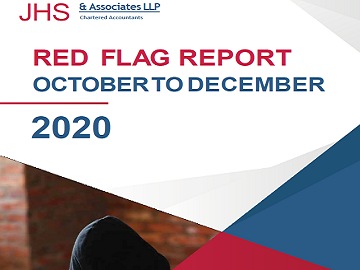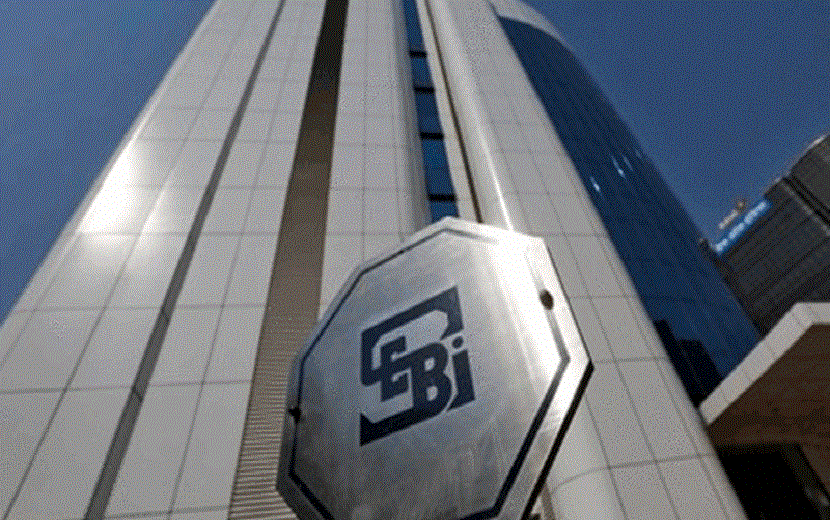JHS UNION Budget Analysis 2020-21
Reference: Central Board of Indirect Taxes and Customs
Update:
Streamlining export data to include District level details in Shipping Bills:
CBIC has decided that, apart from the data/ information required to be furnished in the present electronic form of electronic integrated declaration mentioned in Regulation 3 of Shipping Bill (Electronic Integrated Declaration and Paperless Processing) Regulations 2019 , the following additional information will be required to be furnished for every item in the Shipping Bill :-
(i) The State of Origin of goods.
(ii) District of Origin of goods.
(iii) Details of Preferential Agreements under which the goods are being exported, wherever applicable.
(iv) Standard Unit Quantity Code (SQC) for that CTH as per the first schedule of the Customs Tariff Act, 1975.
Certain cases have been reported where the importer or exporter did not declare their GSTIN in the Bill of Entry/Shipping Bill despite being registered with GSTN. The declaration of GSTIN shall also be mandatory in import/export documents for the importers and exporters registered as GST taxpayers.
Implication:
Importer or exporter are required to declare GSTIN in import/export documents for the importers and exporters registered as GST taxpayers. The above provisions shall come into force from 15.02.2020
Update:
Due dates for filing of return in FORM GSTR-3B in a staggered manner:
CBIC has prescribed due dates for filing of return in FORM GSTR 3B in a staggered manner. As per this scheme taxpayers having an aggregate turnover of up to rupees five Crore in the previous financial year shall e file return in FORM GSTR 3B in the below prescribed manner:
I. For Registered person, whose principal place of business is in States of Chhattisgarh, Madhya Pradesh, Gujarat, Maharashtra, Karnataka, Goa, Kerala, Tamil Nadu, Telangana or Andhra Pradesh or the Union territories of Daman and Diu and Dadra and Nagar Haveli, Puducherry, Andaman and Nicobar Islands and Lakshadweep, due date is:
| Month | Due date |
| January 2020 | 22.02.2020 |
| February 2020 | 22.03.2020 |
| March 2020 | 22.04.2020 |
II. For Registered person, whose principal place of business is States of Himachal Pradesh, Punjab, Uttarakhand, Haryana, Rajasthan, Uttar Pradesh, Bihar, Sikkim, Arunachal Pradesh, Nagaland, Manipur, Mizoram, Tripura, Meghalaya, Assam, West Bengal, Jharkhand or Odisha or the Union territories of Jammu and Kashmir, Ladakh, Chandigarh and Delhi, due date is:
| Month | Due date |
| January 2020 | 24.02.2020 |
| February 2020 | 24.03.2020 |
| March 2020 | 24.04.2020 |
Implication
Taxpayers shall file return in FORM GSTR 3B on or before due dates prescribed by the CBIC to avoid additional fees/penalty
Update:
Implementation of automated clearance on pilot basis:
The Central Board of Indirect Taxes & Customs has now decided to implement the facility of automated clearance as envisaged in 1st proviso to Section 47(1) in the Customs Act, 1962. However, the facility will be initially rolled out on a pilot basis at 2 Customs locations- Chennai Customs House & Jawaharlal Nehru Customs House with effect from February 6th, 2020. Thereafter, the facility will be reviewed and further expanded on PAN India basis at all Customs EDI locations where RMS is enabled and functional.
Update:
Extension of due date for e-filing Annual Return:
CBIC has extended the time limit for furnishing of the annual return under under section 44 of the CGST Act read with rule 80 of the CGST Rules for the FY 2017-18 as follows:
| Registered person, whose principal place of business is in | Due date for furnishing annual return for FY 2017-18 |
| Chandigarh, Delhi, Gujarat, Haryana, Jammu and Kashmir, Ladakh, Punjab, Rajasthan, Tamil Nadu, Uttarakhand. | 05.02.2020 |
| Andaman and Nicobar Islands, Andhra Pradesh, Arunachal Pradesh, Assam, Bihar, Chhattisgarh, Dadra and Nagar Haveli and Daman and Diu, Goa, Himachal Pradesh,Jharkhand, Karnataka, Kerala, Lakshadweep, Madhya Pradesh, Maharashtra, Manipur, Meghalaya, Mizoram, Nagaland, Odisha, Puducherry, Sikkim, Telangana, Tripura, Uttar Pradesh, West Bengal, Other Territory | 07.02.2020 |
Implication:
The taxpayers will have more time for filling their annual return under the act.
Update:
Customs Tariff (Identification, Assessment and Collection of Countervailing Duty on Subsidised Articles and for Determination of Injury) Amendment Rules, 2020:
CBIC has notified Customs Tariff (Identification, Assessment and Collection of Countervailing Duty on Subsidised Articles and for Determination of Injury) Amendment Rules, 2020. In the new rule CBIC has introduced anti-circumvention provisions and made certain other miscellaneous changes.
Update:
Exemptions from Health Cess leviable on specified goods:
CBIC exempted goods of the description specified in the notification from the whole of the Health Cess leviable thereon under the said clause of the Finance Bill.
In case of goods specified in said notification, the exemption shall be subject to the condition, if any, specified under the respective exemption notifications mentioned therein.
Update:
Anti Dumping revoked on Purified Terephthalic Acid including its variants:
Central Government revoked the anti dumping duty imposed on “Purified Terephthalic Acid” including its variants “Medium Quality Terephthalic Acid” and “Qualified Terephthalic Acid”, originating in or exported from the People’s Republic of China, Iran, Indonesia, Malaysia, Taiwan, Korea RP and Thailand, and imported into India and has rescinded the notifications relating thereto.
Implication:
Purified Terephthalic Acid including its variants Medium Quality Terephthalic Acid and Qualified Terephthalic Acid is exempted from anti dumping duty.
Reference: Central Board of Direct taxes
Update:
Income Tax (Third Amendment) Rule, 2020:
Ministry of Finance has notified Income Tax (Third Amendment) Rule, 2020. In the new rule, It has prescribed Other electronic modes under various section and provisions of the Income Tax Act. Following are other electronic modes prescribed under new Rule 6ABBA:
- Credit Card;
- Debit Card;
- Net Banking;
- IMPS (Immediate Payment Service);
- UPI (Unified Payment Interface);
- RTGS (Real Time Gross Settlement);
- NEFT (National Electronic Funds Transfer),
- BHIM (Bharat Interface for Money) Aadhar Pay
Implication:
The above provision shall be deemed be effective from the 1st day of September, 2019.
Update:
Ministry of Finance issues clarification on NRI taxation / ‘stateless’ person clause
The Finance Bill, 2020 has proposed that an Indian citizen shall be deemed to be resident in India, if he is not liable to be taxed in any country or jurisdiction. This is an anti-abuse provision since it is noticed that some Indian citizens shift their stay in low or no tax jurisdiction to avoid payment of tax in India.
The new provision is not intended to include in tax net those Indian citizens who are bonafide workers in other countries. In some section of the media the new provision is being interpreted to create an impression that those Indians who are bonafide workers in other countries, including in Middle East, and who are not liable to tax in these countries will be taxed in India on the income that they have earned there. This interpretation is not correct.
In order to avoid any misinterpretation, it is clarified that in case of an Indian citizen who becomes deemed resident of India under this proposed provision, income earned outside India by him shall not be taxed in India unless it is derived from an Indian business or profession. Necessary clarification, if required, shall be incorporated in the relevant provision of the law.
Reference: Ministry of Corporate Affairs
Update:
Relaxation of additional fees and extension of last date in filing of forms MGT-7 and AOC-4- UT of J&K and UT of Ladakh
MCA has further extend the due date for filing of financial statements for the financial year ended 31.03.2019 in e-forms AOC-4, AOC-4 (CFS) AOC4 XBRL and e-form MGT-7 upto 31.03.2020, for companies having jurisdiction in the UT of J&K and UT of Ladakh without levy of additional fee.
Implication:
Companies having jurisdiction in UT of J&K and UT of Ladakh will have more time for filing annual return under companies Act 2013
Update:
Companies (Compromises, Arrangements and Amalgamations) Amendment Rules,2020
MCA has notified Companies (Compromises, Arrangements and Amalgamations) Amendment Rules,2020. Vide the said amendment MCA has provided that a member of the company shall make an application for arrangement, for the purpose of takeover offer, when such member along with any other member holds not less than three-fourths of the shares in the company, and such application has been filed for acquiring any part of the remaining shares of the company.
The Rule has also provided that the application of arrangement for takeover offer shall contain following:-
- the report of a registered valuer disclosing the details of the valuation of the shares proposed to be acquired by the member after taking into account the following factors: –
- the highest price paid by any person or group of persons for acquisition of shares during last twelve months;
- the fair price of shares of the company
- details of a bank account, to be opened separately, by the member wherein a sum of amount not Iess than one-half of total consideration of the takeover offer is deposited
Implication:
A new procedure shall be followed by a member while applying for arrangement for takeover offer.
Update:
Nidhi (Amendment) Rules, 2020
MCA has notified the Nidhi (Amendment) Rules, 2020. Vide the amendment MCA has substituted the Form NDH-I, NDH-2 & NDH-3 which was provided in Nidhi Rules, 2014.
Implication:
The said amendment shall come in to force from 10th February, 2020. The stakeholders are required to use the new Forms for filing purpose.
Update:
National Company Law Tribunal (Amendment) Rules,2020:
MCA has amended Nationaal Company Law Tribunal Rules, 2016. Vide the said amendment MCA has provided that an application made in Form NCLT-1 for arrangment for takeover offer shall be accompanied with following documents:
- .Affidavit verifying the petition
- Memorandum of appearance with copy of the Board\’s Resolution or the executed vakalabrama, as the case may be.
- Documents in support of the grievance against the takeover.
- Any other relevant document
MCA has also provided fees for Application in cases of takeover offer of companies which are not listed shall be Rs. 5,000
Reference: Reserve Bank of India
Update:
Cash withdrawal using Point of Sale (PoS) terminals
RBI had issued notifications in which banks were required to obtain one time permission from the Reserve Bank of India (RBI) for offering the facility of cash withdrawal at PoS terminals deployed by them.
RBI has decided that the requirement of obtaining permission from the RBI be dispensed with and that henceforth, banks may, based on the approval of their Board, provide cash withdrawal facility at PoS terminals.
Implication:
The designated merchant establishments may be advised to clearly indicate / display the availability of this facility along with the charges, if any, payable by the customer
Update:
Extension of directions issued to Shivam Sahakari Bank Ltd., Kolhapur, Maharashtra
RBI had placed the Shivam Sahakari Bank Ltd., Ichalkaranji, Kolhapur, Maharashtra, under Directions from the close of business on May 19, 2018. RBI has extended the period of aforesaid Directive and shall continue to apply to the bank till March 31, 2020.
Implication:
The aforesaid extension and /or modification by the Reserve Bank of India should not per-se be construed to imply that Reserve Bank of India is satisfied with the financial position of the bank.
Update:
Extension of directions issued to The CKP Co-operative Bank Ltd, Mumbai, Maharashtra
RBI had placed The CKP Co-operative Bank Ltd, Mumbai, Maharashtra under Directions from close of business on May 2, 2014. The validity of the directions was extended from time to time & the last being upto January 31, 2020. RBI has extended the further period of 2 months from February 01, 2020 to March 31, 2020
Implication:
The said bank will have to comply with directions issued by RBI for further period of 2 months till 31st March 2020
Update:
Monetary penalty on Fortune Integrated Assets Finance Limited
The Reserve Bank of India (RBI) has imposed, a monetary penalty of Rs. 2 lakh on Fortune Integrated Assets Finance Ltd., Mumbai, for non-compliance with directions issued by RBI on ‘Monitoring of Frauds in NBFCs (Reserve Bank) Directions, 2016’.
Implication:
The said NBFC will comply with directions issued by RBI to avoid further penalty
Update:
Extension of Direction- Vasantdada Nagari Sahakari Bank Ltd., Osmanabad, Maharashtra
RBI had issued directions to Vasantdada Nagari Sahakari Bank Ltd., Osmanabad, Maharashtra from the close of business on November 13, 2017. Reserve Bank of India has now further extended the directions for a period of two months from February 01, 2020 to March 31, 2020.
Implication:
The said bank will have to follow the directions issued by the RBI for further period of two months i.e., till 31.03.2020
Update:
Increases the insurance coverage for depositors:
Reserve Bank of India, has raised the limit of insurance cover for depositors in insured banks from the present level of Rs. 1 lakh to Rs. 5 lakh per depositor with effect from February 4, 2020 with the approval of Government of India.
Update:
Monetary penalty on Bhilai Nagrik Sahakari Bank Maryadit:
RBI has imposed a monetary penalty of RS.1,50,000/- on Bhilai Nagrik Sahakari Bank Maryadit,Bhilai, for violation of guidelines on “Know Your Customer” Norms issued by the Reserve Bank.
Implication:
The said Bank will comply with directions issued by RBI to avoid further penalty
Update:
Interest Subvention Scheme for MSMEs
RBI had issued operational guidelines for the captioned scheme contained in circular on ‘Interest Subvention Scheme for MSMEs’:
- Submission of statutory auditor certificate by June 30, 2020 and in the meantime, settle claims based on internal / concurrent auditor certificate.
- Acceptance of claims in multiple lots for a given half year by eligible institutions.
- Requirement of Udyog Aadhar Number (UAN) may be dispensed with for units eligible for GST. Unit not required to obtain GST, may either submit Income Tax Permanent Account Number (PAN) or their loan account must be categorized as MSME by the concerned bank.
- Allow trading activities also without Udyog Aadhar Number (UAN)
It has also revised Format of Certificate for claiming Subsidy. Banks are advised to submit claims to SIDBI as per the revised format.
Reference: Securities Exchange Board of India
Update:
Currency Future and Options Contracts (involving Indian Rupee) on Exchanges in International Financial Services Centres (IFSC)
SEBI has decided for currency futures and options contracts involving Indian Rupee (with settlement in foreign currency), the position limits for eligible market participants, per currency pair per stock exchange, shall be as follows:
- Trading Members (positions on proprietary basis as well as clients’ position) -Gross open position across all contracts not to exceed 15% of the total open interest or USD 1 billion equivalent, whichever is higher
- Institutional Investors -Gross open position across all contracts not to exceed 15% of the total open interest or USD 1 billion equivalent, whichever is higher
- Eligible Foreign Investors –Gross open position across all contracts not to exceed 15% of the total open interest or USD 1 billion equivalent, whichever is higher
- Other Clients –Gross open position across all contracts not to exceed 6% of the total open interest or USD 100 million equivalent, whichever is higher.
Explanation :
For the purpose of extending aforementioned positions limits, Institutional Investors includes the following:
- International Banking Units (IBU) set up in IFSC
- Foreign Portfolio Investors (FPI)
- AMCs and other Funds set up in IFSC
- Insurance Companies set up in IFSC
- Foreign Banks setup in other offshore jurisdictions
- Supranational, Multilateral or Statutory Organization / Institution/Agency
Implication:
Appropriate penalties for violation of position limits by eligible market participants shall be imposed.
Update:
Performance review of the commodity derivatives contracts:
SEBI has issued guidelines for MD/ CEOs & All Recognized Stock Exchanges having commodity derivatives segment except those in International Financial Services Centre relating to Performance review of the commodity derivatives contracts. As per said guidelines:
- All recognized stock exchanges shall review the performance of all contracts traded on their exchanges, in commodity derivatives segment, as per the parameters laid down in the Circular.
- The said performance review shall be consulted with the Product Advisory Committee
- The said performance review along with the methodology adopted in evaluation, if any, shall be disclosed by the stock exchanges on their website prominently.
- The said performance review shall be conducted on an annual basis for each financial year and shall be disclosed by 30th June of the following financial year
Implication:
This will evaluate the performance of these contracts based not merely on statistics regarding delivery and trade volumes but also on the strength of a comprehensive empirical assessment after considering all relevant information, pertaining to the performance of a derivative contract during the relevant period of time. Also protect the interests of investors in securities and promote the development of, and regulate the securities market. The Circular would be effective from April 01, 2020.
Update:
Securities and Exchange Board of India (Issuing Observations on Draft Offer Documents Pending Regulatory Actions) Order, 2020:
SEBI has issued a SEBI (Issuing Observations on Draft Offer Documents Pending Regulatory Actions) Order, 2020 which supersede the Securities and Exchange Board of India (Issuing Observations on Draft Offer Documents Pending Regulatory Actions) Order, 2006 with immediate effect. In the said Order SEBI has laid down the procedures to be followed by the Board in following circumstances:
- Treatment where there is a probable cause for investigation or enquiry or when an investigation or enquiry is in progress against the entities
- Treatment where show cause notice has been issued
- Treatment where recovery proceedings have been initiated or an order for disgorgement or monetary penalty has not been complied with or in case of non-compliance with any direction issued by the Board
- Reconsideration of proceedings pursuant to remand by the Securities Appellate Tribunal or court
- Issuance of observations when the issuer is restrained by a court from making a public issue or filing of offer document
- Issuance of observations do not indicate exoneration
Update:
Common Application Form for Foreign Portfolio Investors
Govt of India on 27th January 2020, has notified the Common Application Form for the purpose of registration, opening of bank and demat accounts, and application for Permanent Account Number by Foreign Portfolio Investors (FPIs) in India.
SEBI provided that the applicants seeking FPI registration shall be required to duly fill CAF and ‘Annexure to CAF’ and provide supporting documents and applicable fees for SEBI registration and issuance of PAN. The other intermediaries dealing with FPIs may rely on the information in CAF for the purpose of KYC.
It has also stated that Designated Depository Participants may continue to accept in–transit FPI registration applications, for a period of 60 days from date of issuance of this Circular, received in the form prescribed in operational guidelines issued on November 05, 2019.
Update:
Disclosure Standards for Alternative Investment Funds (AIFs) :
SEBI has introduced template(s) for PPM, subject to certain exemptions, and mandatory performance benchmarking for AIFs with provisions for additional customized performance reporting:
Key Takeaways
- Standard format of the PPM has been formally notified.
- Annual audit of compliance with the PPM will be mandatory for all AIFs,
- Exemptions from the above provided for
(i) Category I AIF – Angel Funds; and
(ii) platforms where each investor has committed USD 10 million or more, subject to the investors signing a waiver letter.
Performance Benchmarking
- Benchmarking agencies to be notified by an industry association of AIFs having majority representation. The format of reporting shall be decided mutually between the industry association
- The industry performance data will be publically available. Each AIF which has completed 1 year from first close will need to procure performance benchmarking report and provide the same to its investors.
- Detailed guidelines for performance benchmarking prescribed.
Reference: Insurance Regulatory and Development Authority of India
Update:
Committee on Development of a concept paper on standalone Micro- Insurance Company
IRDAI has formed a committee on Development of a concept paper on standalone Micro- Insurance Company for allowing standalone insurers for transaction of exclusive Micro-Insurance business, as it may boost the Micro-Insurance penetration in India with geographical spread.
The terms of reference of the committee are:
- To assess the desirability and feasibility of formation of standalone Micro-Insurance Companies;
- To review the existing legal and regulatory framework to enable a standalone micro-insurance company Indian Insurance Company after analysing similar provisions in other jurisdictions;
- Recommend on the maximum sum insured per person which may be accepted by the proposed micro-insurance Company;
- Considering the aspect of ease of doing business, suggest on the applicability and or relaxation of extant Act / Regulatory provisions for proposed micro-insurance Company, which may be registered as an insurer.
Reference: Employment / Labour Laws
Update:
New Pension Schemes for unorganised Sector
Government of India has introduced two voluntary and contributory Pension Schemes, i.e.
- Pradhan Mantri Shram Yogi Maan-dhan Yojna, (PM-SYM), a pension scheme for the Unorganised Workers and
- National Pension Scheme for the Traders and Self Employed Persons (NPS-Traders) (for the Vyapari’s) under section 3(1) of Unorganised Workers Social Security Act, 2008 to provide old age protection to them.
The schemes envisage for providing minimum assured monthly pension of Rs. 3000/- after attaining the age of 60 years. If the subscriber dies, the spouse of the beneficiary shall be entitled to receive 50% of the pension as family pension. Family pension is applicable only to spouse. The monthly contribution ranges from Rs.55-Rs.200/- depending upon the entry age of the beneficiary.
KNOWLEDGE ALERT
Insights to help you sharpen your Governance, Risk and Compliance Knowledge
Issued by: Knowledge Management Team of JHS & Associates LLP (JHS), Chartered Accountants
DISCLAIMER
- JHS & Associates LLP, Chartered Accountants [“JHS”] by means of this presentation is not rendering any professional advice, or services whatsoever.
- JHS is under no obligation whatsoever to update, or revise this presentation, or the information provided herein.
- JHS has taken reasonable care to ensure that the information in this presentation is accurate. It however accepts no legal responsibility for any consequential incidents that may arise from errors or omissions contained in this presentation.
- This presentation is strictly confidential and is for the intended recipient only. It is solely for the recipient to determine what may, or may not be accurate or appropriate.
- This presentation should be viewed solely in conjunction with the oral session conducted by JHS, failing which it is deemed to be incomplete.
- This presentation is based on the information available to JHS at the time of preparing the same, all of which are subject to changes which may, directly or indirectly impact the information and statements given in this presentation.
- This presentation has been prepared on the basis of information available in the public domain and is intended for guidance purposes only. This information is not comprehensive and has not been independently verified as to accuracy, or completeness by JHS.
- This presentation may not be used for any other purpose without the prior written consent of JHS.
- Neither JHS, nor any person associated with JHS will be responsible for any loss howsoever sustained by any person or entity who relies on this presentation. Interested parties are strongly advised to examine their precise requirements for themselves, form their own judgments and seek appropriate professional advice.
If you do not wish to receive this knowledge alert you may please write to us on connect@jhsassociates.in .If you have any questions or seek more clarity please write to us on connect@jhsassociates.in.
Copyright © 2020. JHS & Associates LLP, Chartered Accountants. All Rights Reserved













